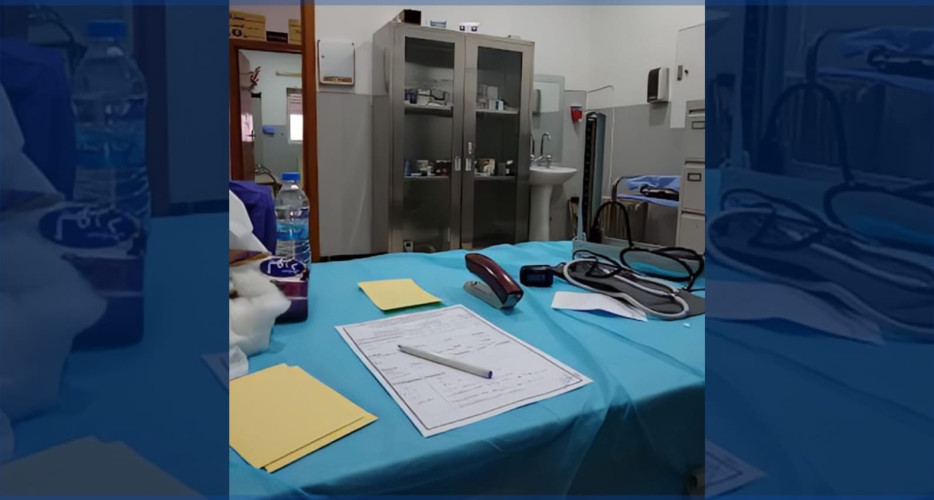
Peregraf- Ammar Aziz
Driving from his mountain village in Duhok governorate, it sometimes takes an hour and a half for Hersh Musa to reach a dentist for treatment.
"It doesn’t even make sense," Musa told Peregraf. "We have to go to Duhok or Mosul for dental cleaning, extraction, or other dental treatments."
"This has been our situation for decades," he added.
There is just one dentist currently working in Amedi district, where Musa lives. It has a population of 150,000 people.
Dr. Ibrahim Hassan, director of health in Amedi district, told Peregraf that there are usually two dentists, but one is currently on maternity leave.
"We have many complaints about the health care sector. There are not enough doctors or medicine. Some of the specialists are from Duhok and when they arrive in Amedi it is already 10 a.m. and a big chunk of the working day is already over and many people are waiting at the hospitals to see them," said Musa.
According to rules put in place by the Kurdistan Regional Government (KRG), any dentist who plans to set up their own clinic must work as a volunteer in a public hospital for two years. This time requirement is cut to one year if the clinic is located in a rural area.
Dr. Saeed Ali Mohammed, president of the Duhok branch of the Dental Union, told Peregraf that dentists doing public service are given travel expenses, but they are "not paid, contracted or employed."
"They are not forced to volunteer forever and we cannot put pressure on them," Mohammed added.
According to official statistics, there are 700 dentists registered with the Duhok Dental Union, of which only 120 are currently employed. Some of the others work as volunteers at public clinics before opening their own offices, but most of the remaining number are not actively employed as dentists.
There are 23 health centers in Amedi district, including a general hospital. Only nine of these health centers have doctors and the others are run by nurses and other kinds of medical officials.
Hassan said that his directorate has asked for a new dentist to be sent, but it has not been fulfilled.
"Those who are employed are not forced to leave their homes and children and come to work in Amedi," he said, adding that the lack of proper dental care in the area is a "big problem."
Afrasiab Musa, director general of health in Duhok governorate, told Peregraf that the austerity measures restricting hiring that have been in place since 2014 have limited officials’ ability to staff public hospitals.
He added that most qualified dentists prefer to work in the cities rather than in relatively rural areas like Amedi. They also cost more because the government must pay for their travel and accommodation.
Amedi in particular has difficulty attracting dentists and doctors from the cities, due to the ongoing security situation. There is regular fighting between Turkey and the Kurdistan Workers’ Party (PKK) in the district and airstrikes by Turkey have killed several civilians.
Duhok governorate in general has acute problems related to access to health care. Residents in Duhok city and Bardarash have been waiting for more than a decade for promised hospitals to be completed.
The governorate borders both Turkey and Syria and has two lucrative border crossings. Moreover, it produces more than half of the oil in the Kurdistan Region.
Yet, according to statistics from both the KRG Ministry of Planning and Iraq’s federal government, it is the poorest governorate in the Kurdistan Region.